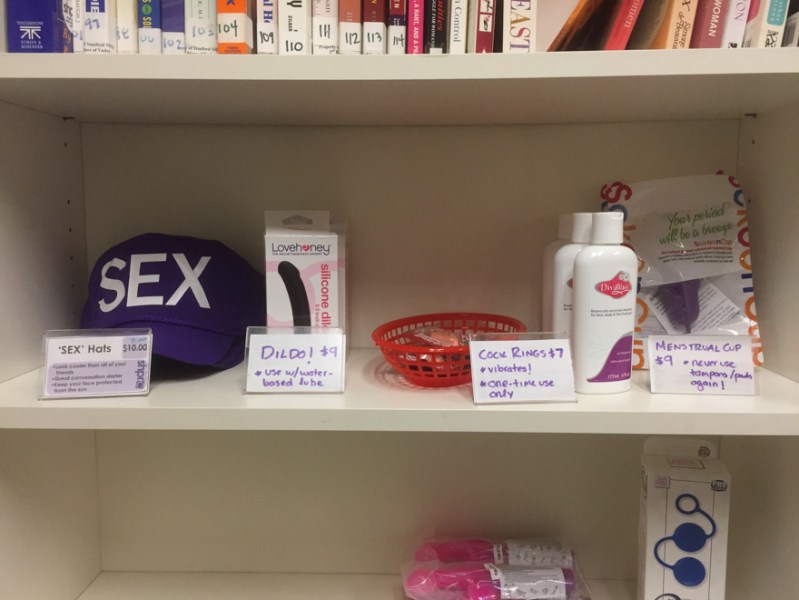Inside of a small, colorful room on the second floor of the Vaden Health Center, students at the Sexual Health Peer Resource Center (SHPRC) are working to destigmatize sexual health and provide wellness services and resources to the Stanford community.
From subsidized contraceptives to stuffed herpes simplex virus toys, the center exudes sex-positivity and encourages students to embrace their sexual identities.
Founded by Stanford students in the 1970s, just as the first birth control pills were hitting the market, the student-run office provides all kinds of products to fit students’ diverse sexual and gender-based needs. Today, undergraduate students receive a $3 credit each quarter via Associated Students of Stanford University funding to spend on menstrual products, lubricant, chest binders, massage oils and more. Students can also peruse or check out books concerning sexuality and sexual health from the SHPRC lending library.
In order to work at SHPRC, students must first complete the two-unit class WELLNESS 191: “Peer Education on Comprehensive Sexual Health.” The course is taught by representatives from SHPRC and the Weiland Health Initiative, an intersectional campus health service aimed at supporting the LGBTQ+ community.
For Amaris Lewis ’23, WELLNESS 191 served as a welcome change from what they had experienced in their Louisiana high school, where they said that “sex-ed [was] nonexistent.”
“The class has a special place in my heart,” Lewis wrote in an email. Now a member of the teaching team, Lewis finds it “fulfilling to give students a space to take charge of their sexual health choices and to comfortably share their own experiences.”
“Having a peer distill this information to you” rather than an outside source “can really make a world of a difference,” Lewis wrote. “Sexual health is everyday health.”
Similarly, Hiran Dewar ’23 said that she appreciates the open and vulnerable environment that WELLNESS 191 fosters. The course enables students to discuss important nuances such as pleasure and sexuality in a welcoming environment, she wrote.
“It is so fulfilling to be a part of the authentic space that we are able to cultivate — often people say that this is the first time they’ve been able to talk about sex and sexuality so openly,” she added.
As one of the few spaces on campus that actively works to educate community members on sexual health and sexuality, SHPRC helps make traditionally taboo topics more approachable.
SHPRC’s mission of “normalizing things like STIs [sexually transmitted diseases], menstruation and sex” enables conditions in which “sexual health resources are both physically and emotionally accessible,” Dewar said.
Eliana Fuchs ’23, a SHPRC employee, echoed Dewar’s sentiment, writing in email that destigmatizing topics of sexual health allows for more effective communication around consent and pleasure among partners. The services and resources offered at SHPRC are a healthy alternative to internet sources or pornography, which students may otherwise use to answer their sexual health questions, according to Fuchs.
“Stigma around talking about sex allows for a society where people are silent when they want to say no,” Fuchs said. “College students are going to have sex. The question is whether they do it safely.”
Students can visit the SHPRC office from 11 a.m. to 5 p.m. on Mondays, Thursdays and Fridays and from 12 p.m. to 5 p.m. on Tuesdays and Wednesdays, or by phone at 650-SAFE-SEX (650-723-3739).
